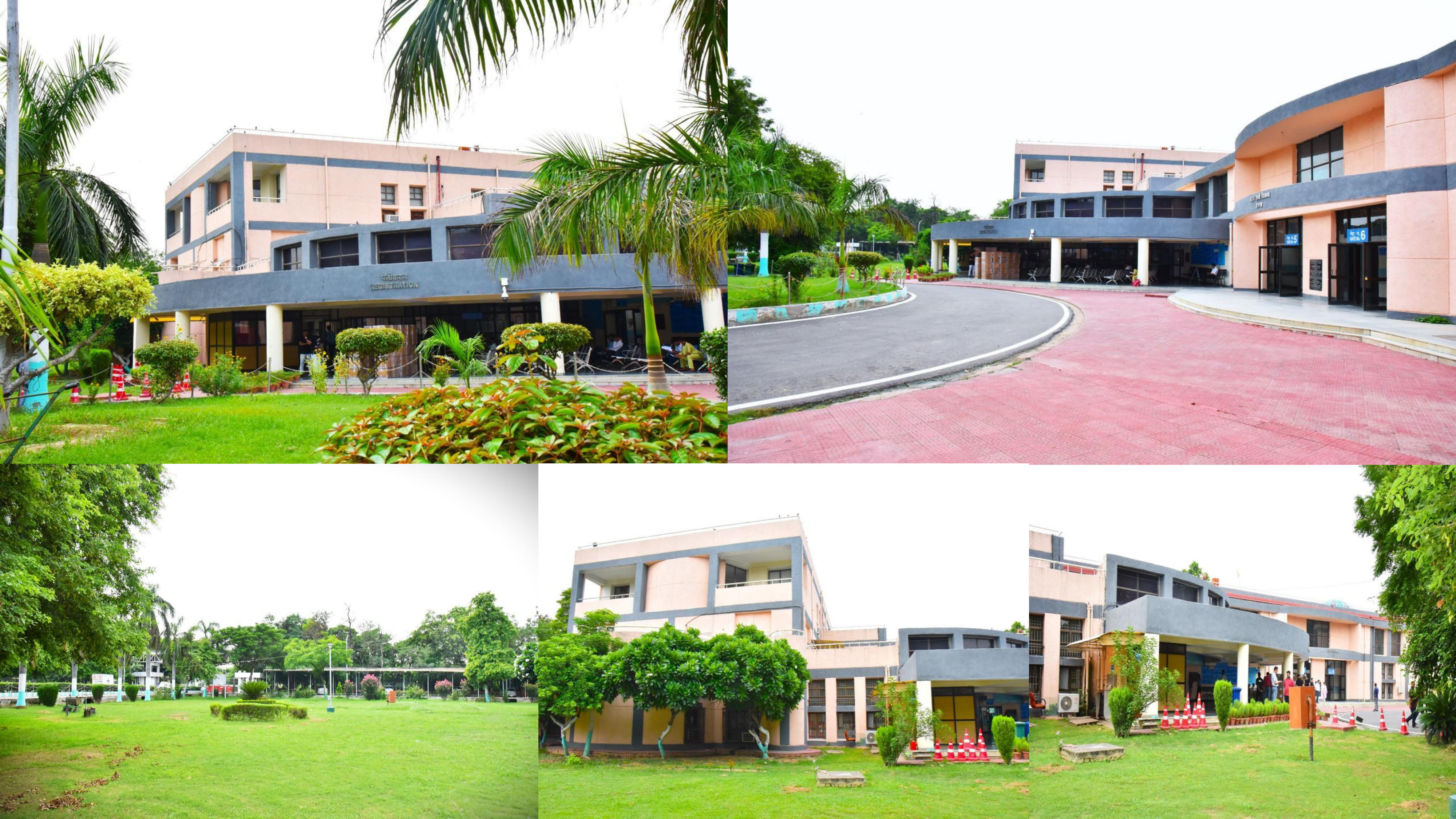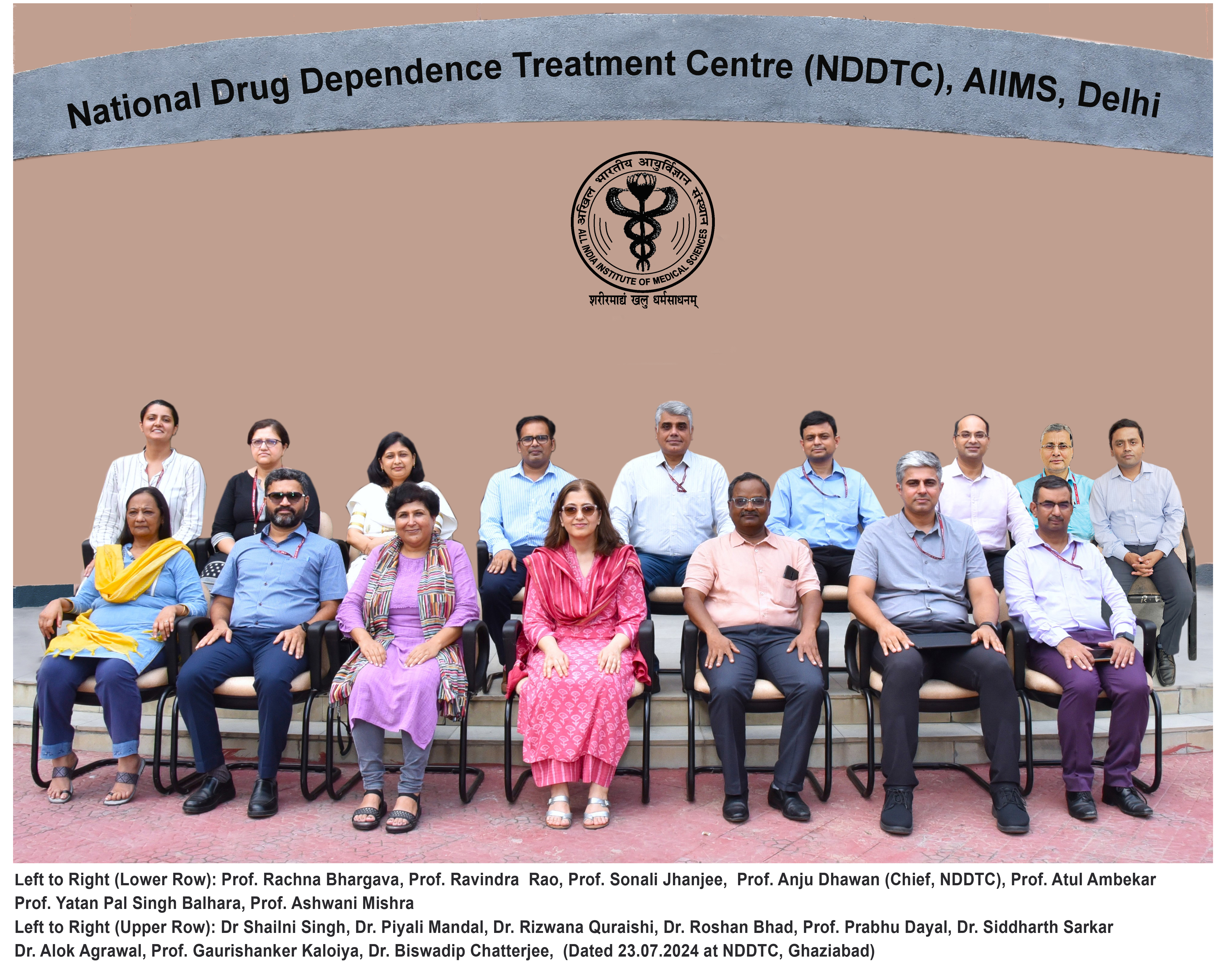- Last Updated On :

National Drug Dependence Treatment Centre (NDDTC)
Introduction
|
|

The Drug Dependence Treatment Centre, AIIMS was established in the year 1988 and was functional from the premises of the Deen Dayal Upadhyay Hospital, New Delhi. In 2003 it was upgraded as the National Centre (National Drug Dependence Treatment Centre) and is fully operational from its new premises in Ghaziabad, Delhi-NCR since April 2003.
The National Drug Treatment Centre, Ghaziabad (NDDTC), AIIMS has been established as the apex centre for treatment of drugs and substance abuse disorders in the country. It provides a state of art model for de‐addiction treatments. This centre has full range of specialists & facilities. The NDDTC is situated on 10 acre beautiful campus near CGO Complex at Ghaziabad, Delhi-NCR. It is presently having 50 bedded treatment facilities with expansion plan for the future.
The centre has well qualified multi-disciplinary faculty and staff (medical doctors, pre-clinical scientists, social scientists, research staff, nursing staff, laboratory personnel and administrative staff) to render various modalities of care. Clinical care is provided through outpatient, inpatient settings and community clinics. Help is available for the treatment of disorders related to use of all the substances i.e. Alcohol, Opioids, Cannabis, Tobacco etc. and behavioral addictions. Treatment modalities include both pharmacological (i.e. with medications) and non-pharmacological (i.e. psychological / social) treatments. Both medically assisted and drug-free treatment related to drug use, and long-term supervised medications (Buprenorphine/Methadone/Naltrexone maintenance therapy) are provided. The centre carries out the relevant hematological, biochemical laboratory tests to monitor health damage. Further, several drugs of abuse are screened simultaneously through analysis of patients’ urine sample.
The centre has been involved in:
- Assessing magnitude of addiction problem in the country
- Providing clinical care to patients – outpatient, inpatient and community based -through daily OPD, specialty clinics, ward and community clinics in urban-slums of Delhi
- Health education& prevention of addictive disorders in the country
- Capacity building & human resourcedevelopment – including training of several categories of staff
- Documentation, publication of resource material and creation of database
- Establishment and development of laboratory services to detect drugs of abuse in body fluids and health damage
- Research
The centre provides clinical care to about 4000 new patients and about 35000 old patients every year. It also provides clinical care to about 33000 patients in its community clinic. In addition, every year about 600 patients are seen in Tobacco use cessation clinic, about 40 patients in adolescent clinic and about 300 patients in dual diagnosis clinic.
The years 1999-2012 saw much growth and many achievements for the centre. The centre has developed curricula, training schedules, modalities and resource materials for training of trainers, Medical Doctors (GDMOs), nurses and laboratory personnel. Between January 1989 and October 2007, about 40 courses for doctors have been organized. Various manuals for doctors are available. The training programmes have been reviewed and modified through workshops of resource persons.
Besides clinical care, NDDTC has been involved in a multitude of other areas. Right from its inception, NDDTC has played a leadership role in the country and has worked on development of various replicable models of care, training of post-graduate psychiatry students and health professionals, development of resource materials, research and policy planning.
Following is a brief overview of recent contributions:
- Development of Models of Care
- Capacity Building
- Collaborative research with National/International agencies
- Oral Substitution Treatment (OST) using oral morphine, buprenorphine, buprenorphine & naloxone and methadone
- Policy and Planning
Faculty members from NDDTC are members of various expert committees and technical groups at regional and international level, and contributing to policy development. The Ex-Chief of the Centre was a member of the International Narcotics Control Board (INCB), the monitoring body for the implementation of the United Nations international drug control conventions.
Other significant achievements of the centre are:
- PhD Programmein the area of Addiction Psychiatry started since 2010
- DM (Addiction Psychiatry) Programme started since year 2015
- In past three years Centre’s faculty had several important research projects (N=21) on ‘Addictive Disorders”, funded by National and International agencies. Out of which many projects have been completed and the remaining are ongoing. The faculty of the Centre has published several articles in indexed national and international journals and chapters in books\manuals Reports\Proceedings\Manuals\monographs in past three years.
- One of the major significant achievements in recent times has been that the NDDTChas been designated as a WHO Collaborating Centre on Substance Abuse (2012-2020)





